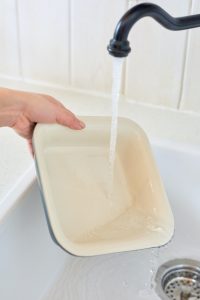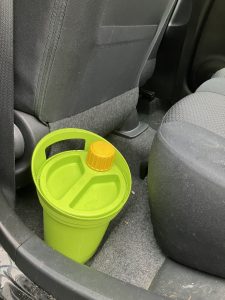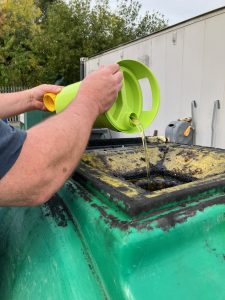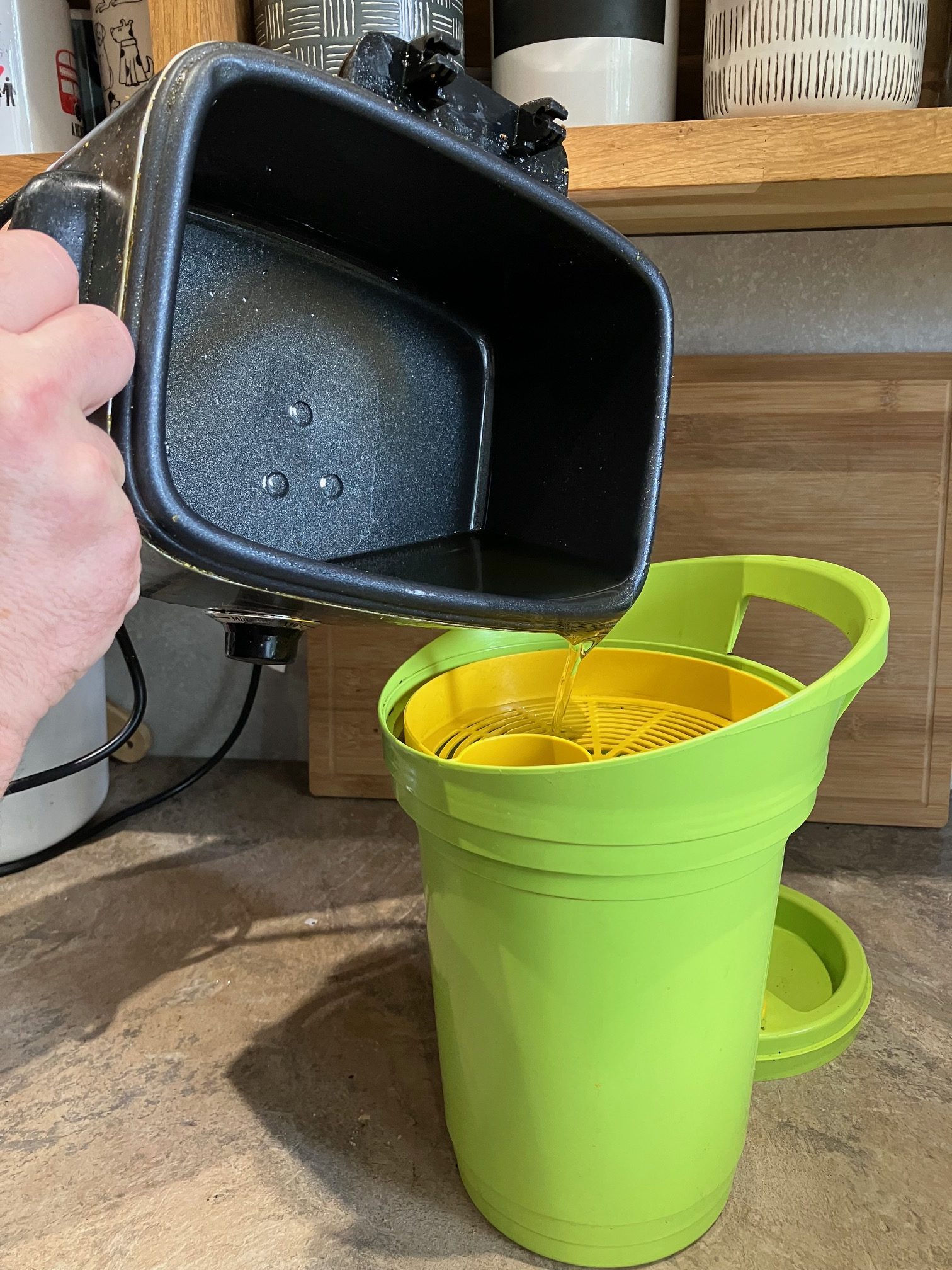If you are among the 48 per cent of the population that pours fats down the sink or drain, then please read on.
Even if you flush fats away with hot water and washing up liquid they do not magically disappear. Fairy liquid does not contain fairies. Instead, fats, oils and grease bind with other objects that should never have been flushed away, creating huge fatbergs that block sewers.
Fatbergs are giant congealed grease balls that are formed when fat attaches to sewer walls, slowly accumulating items such as wet wipes and nappies that have no place in sewers. These fat balls get bigger and bigger and set as hard as concrete.
You may recall the famous Whitechapel fatberg that became news in 2017 – it was longer than two Wembley football pitches and weighed the same as 11 double-decker buses.
And yet thousands of tonnes of oil continue to flow into our sewers each year, causing hundreds of thousands of sewer blockages and sewage flooding to thousands of properties.
The damage costs £90 million in repairs and is totally avoidable.
Unless you are eating your breakfast right now, let’s spare a thought for those who have encountered sewage backflow (3,000 homes a year). Having poo flowing through your house must be an experience you would not forget in a hurry.
It’s not a nice subject to talk about but talk about it we must because education is vital. Many people are not aware that even small amounts of food substances, such as crumbs, butter, margarine, lard, cooking sauce, should never go down the drain. It’s not always obvious – I admit that until researching this article I didn’t know that milk was fatty enough to contribute to a blockage.

Watch what goes down the sink
We also need to spread the word about what a great resource used cooking oil is. Did you know there are facilities at hundreds of household recycling centres across the country for the collection of used cooking oil? The collected oil is refined into a biofuel to create green electricity. Check whether your local site has such a facility and if not ask the local councillors responsible for recycling to look into providing one.
Our family has been recycling our used cooking oil this way since 2010 when I read in the local press about a collection facility at my nearest recycling site, but I’m surprised more people don’t know about it. The oil is collected by vehicles converted to run on the same biofuel and taken to purpose-made generators. Once refined, the biofuel has huge potential – one litre generates enough clean electricity to make 240 cups of tea, while one tonne can provide enough to power the average home for a year.
I used to pour the used oil into various bottles and containers but this was quite messy and I just had to hope the filled containers wouldn’t fall over in the car on the way to the site. Life became easier when we got purpose-built containers that enable us to safely store the oil until the next trip to the recycling centre. Read more

Pouring used cooking oil into the container to store

Carrying oil safely in the car

Adding the oil to the collection facility at the local household recycling centre
To return to fatbergs – which I know you want to – you may already be aware that you should never flush wet wipes, but many people do just that. Most wet wipes are over 90 per cent plastic, which is almost as bad as putting a plastic bag down the loo. Wet wipes account for more than 90 per cent of material in fatbergs and in the UK we use 11 billion of them each year.
As well as wet wipes, putting other items in drains that contain hidden plastics, such as facemasks, nappies, period products and cotton buds, contributes to the millions of pieces of plastic that end up in rivers and seas every day, causing huge damage to wildlife and the environment.
Other items that get flushed into our sewers include contact lenses, condoms, plasters, bandages, razor blades, disposable gloves and dental floss.
Plastic in our oceans breaks down into microplastics, which poison the ocean ecosystem, and when plastic in the water does eventually break down from exposure to the sun, it releases greenhouse gases in the form of methane and ethylene.
If you are appalled by these facts you might want to join this month’s Unblocktober campaign. This is an annual month-long drive to inform people how they can help to save the sewers and seas.
A few years ago when I worked in a primary school we enjoyed an educational visit by staff from Yorkshire Water who talked to the children (who would no doubt go on to inform their parents and grandparents) about what can and can’t be flushed. The children were fascinated by an activity which involved adding different types of paper or wipes to water to see which were the best at dissolving efficiently. For a free-flowing sewerage system you obviously want any paper to dissolve quickly. Toilet paper dissolved in seconds, but not facial tissues, and so-called flushable wipes were extremely resistant to disintegration. Many wipes are incorrectly labelled as flushable.
Monster fatbergs are created by millions of people thinking their own little addition of oil or single wet wipe will not make a difference. At the heart of recycling is the opposite belief – that each individual action does matter. It matters a lot.
Unblocktober began in 2019 and by last year 66,000 people had signed up to get informed and change their kitchen and bathroom habits. Let’s hope even more sign up this year.
For information, tips and advice see Unblocktober | A month to Save Our Sewers and Seas
Julie


